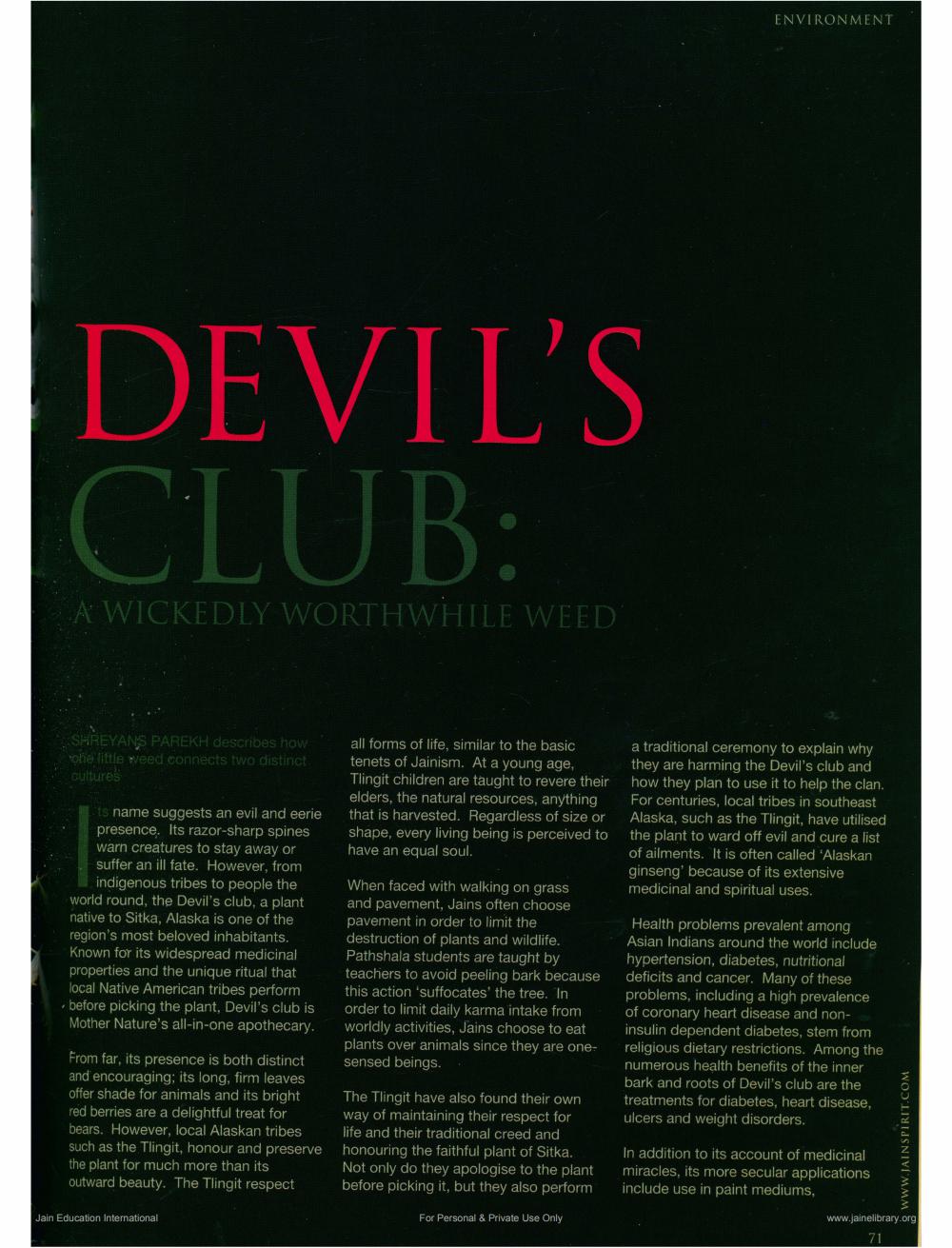________________
DEVIL'S CLUB:
A WICKEDLY WORTHWHILE WEED
SHREYANS PAREKH describes how ohe little weed connects two distinct cultures
ts name suggests an evil and eerie presence. Its razor-sharp spines warn creatures to stay away or suffer an ill fate. However, from indigenous tribes to people the world round, the Devil's club, a plant native to Sitka, Alaska is one of the region's most beloved inhabitants. Known for its widespread medicinal properties and the unique ritual that local Native American tribes perform ⚫ before picking the plant, Devil's club is Mother Nature's all-in-one apothecary.
From far, its presence is both distinct and encouraging; its long, firm leaves offer shade for animals and its bright red berries are a delightful treat for bears. However, local Alaskan tribes such as the Tlingit, honour and preserve the plant for much more than its outward beauty. The Tlingit respect
Jain Education International
all forms of life, similar to the basic tenets of Jainism. At a young age, Tlingit children are taught to revere their elders, the natural resources, anything that is harvested. Regardless of size or shape, every living being is perceived to have an equal soul.
When faced with walking on grass and pavement, Jains often choose pavement in order to limit the destruction of plants and wildlife. Pathshala students are taught by teachers to avoid peeling bark because this action 'suffocates' the tree. In order to limit daily karma intake from worldly activities, Jains choose to eat plants over animals since they are onesensed beings.
The Tlingit have also found their own way of maintaining their respect for life and their traditional creed and honouring the faithful plant of Sitka. Not only do they apologise to the plant before picking it, but they also perform
For Personal & Private Use Only
ENVIRONMENT
a traditional ceremony to explain why they are harming the Devil's club and how they plan to use it to help the clan. For centuries, local tribes in southeast Alaska, such as the Tlingit, have utilised the plant to ward off evil and cure a list of ailments. It is often called 'Alaskan ginseng' because of its extensive medicinal and spiritual uses.
Health problems prevalent among Asian Indians around the world include hypertension, diabetes, nutritional deficits and cancer. Many of these problems, including a high prevalence of coronary heart disease and noninsulin dependent diabetes, stem from religious dietary restrictions. Among the numerous health benefits of the inner bark and roots of Devil's club are the treatments for diabetes, heart disease, ulcers and weight disorders.
In addition to its account of medicinal miracles, its more secular applications include use in paint mediums,
www.JAINSPIRIT.COM
www.jainelibrary.org 71




